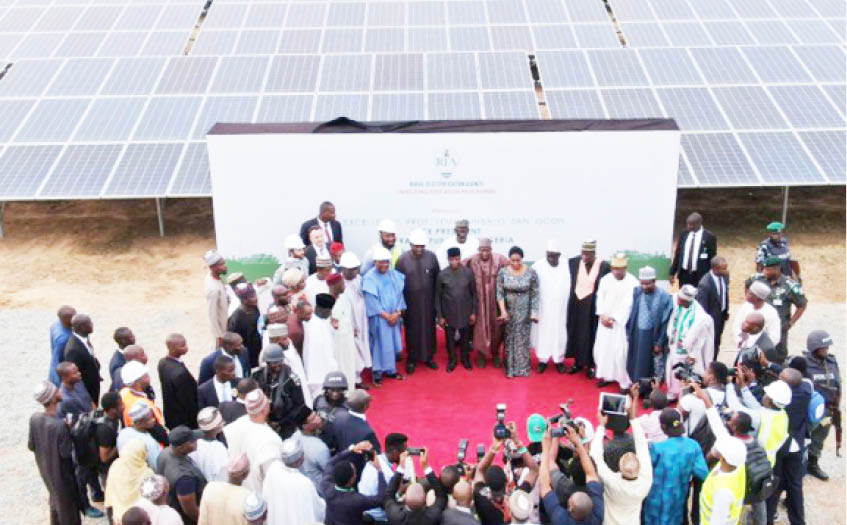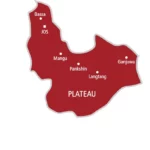-
750,000 installations, 37,500 jobs targeted in 12 months
Access to electricity is one target the Federal Government said it is pursuing with vigour.
At least over 80 million Nigerians are yet to have access to electricity, according to the World Bank.
In this regard, the Federal Government recently launched the N140 billion Solar Power Naija scheme targeted at providing five million connections that will benefit 25 million Nigerians while creating 250,000 jobs. Our reporter analyzes the accessibility process in this piece.
The Federal Government, recently launched the N140billion Solar Power Naija scheme, targeted at providing five million connections that will benefit 25 million Nigerians while creating 250,000 jobs.
The Senior Special Assistant to the Vice President On Media and Publicity, Laolu Akande, had in an earlier statement, said the beneficiaries would pay N4,000 every month for three years, and thereafter, become owners of the equipment, after complete payment.

Akande, who was giving further insight into the project, said the initiative was to ensure that the Federal Government connected more underserved and off-grid communities nationwide.
“The Nigerian government is committed to resolving the challenges and delivering the president’s objective to deliver efficient, stable and reliable power to Nigerians and put Nigeria on the path to economic recovery,” Vice President Yemi Osinbajo said.
However, at the briefing in Abuja, where the project was launched, the Minister of State for Power, Mr Goddy Jeddy-Agba, said the Solar Power Naija programme was to address one of the main challenges to energy, which is access to finance.
He said: “Under this programme, developers can access funds as low as five per cent interest rate.”
Giving an overview of the scheme, the Managing Director of the Rural Electrification Agency (REA) and implementer, Ahmad Salihijo, said Buhari had approved the Economic Sustainability Plan (ESP) earlier this year to combat the effects of the COVID-19 pandemic, and that the solar scheme was part of the package.
“This programme is expected to generate an additional N7b increase in tax revenues per annum and $10million in annual import substitution.
“The Solar Power Naija will address the issue of access to financing through the Central Bank of Nigeria (CBN) for pre-qualified private companies,” Salihijo noted.
He said this could create 250,000 jobs, while helping to provide access to electricity for 25million Nigerians, while also reducing greenhouse gas emission by 20 per cent by 2030.
Speaking further, the REA head expressed optimism over the determination of the Federal Government to transform the power sector in accordance with its Next Level agenda.
“This is a testament to our dedication and commitment to scaling the off-grid solar market through provision of long term low interest credit facilities to the Nigeria Electrification Project (NEP) pre-qualified home solar value chain players that include manufacturers and assemblers of solar components and off-grid energy developers and retailers in the country,” he said.
Salihijo also called on more international donors to support the project, saying, “As we move towards full implementation of the programme, I call on the donors to continue providing support to help in making the off-grid sector commercially viable and in making electricity available and affordable to the off-grid population.”
The CBN is providing the fund to a firm, NESI SSL Limited, which gives the loans to local manufacturers and assemblers on interest through commercial banks.
The Director of Development Finance at the CBN, Yusuf Yila, said, “If we do what all the stakeholders are supposed to do, it will be the most important programme for solving such challenges. As we speak, we have started receiving applications for the upstream.”
At the upstream, the CBN will fund 70 per cent of the manufacturing and assembly proposals, with repayment in 10 years, while the downstream comprising mini grid developers can get N500m payable in three years.
Components of Solar Power Naija
The technical lead for the scheme at the REA, Suleiman Babamanu, said the project was a N140b funding project from the CBN, adding that the programme is in three phases.
Babamanu said the REA hoped to disburse to the first set of developers by December 10 and have the first connection on December 15, 2020.
Records showing the breakdown indicate that in phase 1, which ought to have started in October 2020 to May 2021, there will be deployment with the NEP-prequalified companies and expand the programme beneficiary pool through additional prequalification. In this phase, within 12 months, 750,000 connections will be done with 37,500 jobs created.
Companies involved in the assembly/manufacturing of components of off-grid solar solutions must be 70 per cent Nigeria-owned as the entire ESP is meant to facilitate and spur local productivity.
In phase 2, starting from June 2021 to May 2022, the REA will improve on the programme, using the experience in phase 1 by reviewing the scheme. It will also expand the beneficiary pool with the connections, reaching 1.5 million and creating up to 75,000 jobs.
The phase 3 will have 2.75 million solar connections and over 137 million jobs created. This period will be between June 2022 and May 2023 when the REA is expected to have mastered the scheme by using experiences from phases 1 and 2, while expanding the scheme’s beneficiary pool.
The solar connection scheme aims to achieve three core objectives, Babamanu said.
They are to expand energy access to 25million individuals (5 million new connections) through the provision of Solar Home Systems (SHS) or connection to a mini grid; to increase local content in the off grid solar value chain and facilitate the growth of the local manufacturing and assembly industry; and to incentivise the creation of 250,000 new jobs in the energy sector.
According to the REA, the private companies will be supported to employ more Nigerians to be able to provide services in the area of manufacturing, distribution, installation and other project management and after-sale services.
The Solar Power Naija will also leverage on the support from donor partners, such as the World Bank, USAID, Sustainable Energy for All (SEforALL) and Foreign, Commonwealth and Development Office (FCDO) of Britain, in the areas of data on locations, programme design, manufacturing framework and quality assurance.
The solar scheme is further classified into two components – the upstream and downstream. The upstream component is for assemblers and manufactures of solar panels in Nigeria. They will be accessing loans from commercial banks through a CBN facility.
According to the REA, the commercial banks will be allowed to draw down on their minimum cash reserves with the CBN to provide loans to assemblers, backed by an off-taker agreement with SHS distributors or mini grid developers
The downstream component is for developers of mini grids and distributors of the SHS. The distributors will be able to access loans directly through the CBN-SPV, NESI-SS Ltd, following technical and commercial due diligence conducted by the REA and a selected fund administrator.
The distributors will be required to provide sufficient guarantee, in addition to ring-fencing revenues through a revenue pledge account mechanism enabled by cash sweeps from assigned bank accounts
The REA said the scheme signified its commitment to reducing greenhouse gas emissions by 20 per cent by 2030, when compared to the “business-as-usual” levels.
The agency encouraged other stakeholders, from government agencies, donor partners, to the private sector, to support the scheme in achieving this huge task of delivering 5million connections to 25million Nigerians.
How beneficiaries are selected
The implementing agency, the REA, said it had already done data work. Using public and semi-publicly available household survey data, satellite imagery and advanced machine learning techniques, it engaged a consultant, Fraym to produce population and consumer data at national, state, and local government levels.
“The objective was to identify target households with the ability to pay for a 50 watt tier 2 SHS, distribute the data to off-grid developers, financiers and end-user payment providers to optimise operations and reduce project development and cost of finance.
“Based on the target household criteria, about 7million Nigerian households were identified for immediate deployment,” the agency stated.
Within phase 1, which is in one year, the REA said it had mapped 3,000 settlements, where there are 2,128million buildings across 18 states, with 55,000 kilometres of the grid.
With its data, the REA said the 7million eligible beneficiaries were within communities with over 50 per cent fast or medium repayors (customers who can pay).
The repayment behaviours are segmented into fast, moderate, and slow, which it described as the most common repayment trajectories across the lifetime of a loan.
The beneficiaries will pay between N4,000 and N4,500 every month, and they could complete payment in three years to become permanent owners of the SHS.




